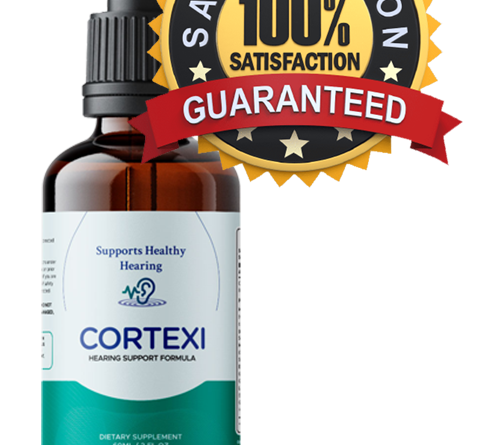
Disclaimer: This post may contain affiliate links. As an Amazon Associate, we earn from qualifying purchases.
In a world where the pursuit of a healthy lifestyle is more prevalent than ever, it’s essential to pause and reflect on a vital question: Does natural always mean healthy? With an increasing emphasis on organic and natural products, there is a growing assumption that anything labeled as such is automatically good for us. However, this article will explore the complexities and nuances of this relationship between natural and healthy, shedding light on a topic that may not be as straightforward as it seems. So, let’s embark on a fascinating journey to uncover the truth behind the allure of “natural” and its impact on our well-being.
The Definition of Natural
Understanding the concept of natural
When it comes to food and products, the concept of “natural” often conjures up images of fresh, unprocessed ingredients straight from nature. However, the term “natural” itself does not have a universally accepted definition. It can be interpreted differently by manufacturers, regulators, and consumers, leading to confusion and conflicting perceptions.
Legal definitions of natural
In the United States, the Food and Drug Administration (FDA) does not have an official definition for the term “natural.” However, they do have guidelines that state natural ingredients are those that are derived from natural sources and do not involve any synthetic or artificial substances in their production. Other countries, such as the European Union, also have their own regulations surrounding the use of the term “natural” on food labels.
Different interpretations by consumers
Consumer perception of what is considered natural varies greatly. Some consumers believe that natural equates to healthier and safer products, while others may be skeptical of the term and see it as a marketing ploy. It is important for consumers to educate themselves on the specific ingredients and production methods used in a product labeled as natural to make informed choices about their purchases.
The Health Halo Effect
Explaining the health halo effect
The health halo effect refers to the perception that a product labeled as natural automatically translates to being healthier or of higher nutritional value. This psychological bias can influence consumer decision-making and lead to potentially misguided choices. People may assume that a natural product is automatically a better option without taking into account other factors such as added sugars, unhealthy additives, or overall nutritional content.
Psychological impact on consumer perception
Studies have shown that the mere presence of a “natural” label on a product can lead consumers to believe that it is lower in calories, contains fewer artificial ingredients, and is overall more nutritious. This cognitive bias can influence their perceptions and choices, often leading to an overestimation of the product’s health benefits.
Marketers and the use of natural claims
Marketers are aware of the health halo effect and capitalize on it by prominently displaying natural claims on packaging and advertisements. While some products genuinely meet the criteria for being natural, others may use the term as a marketing tactic without offering any real health benefits. It is essential for consumers to be critical and read labels carefully to ensure that natural claims align with their desired outcomes.
Natural vs. Synthetic
Differentiating between natural and synthetic
The distinction between natural and synthetic ingredients lies in their origin and production methods. Natural ingredients are derived directly from nature, such as fruits, vegetables, grains, and herbs, without any significant alteration. Synthetic ingredients, on the other hand, are created through chemical processes in laboratories, often made to mimic natural compounds or enhance their properties.
Potential health risks of synthetic ingredients
Some synthetic ingredients have been linked to potential health risks and adverse effects. For example, certain artificial food additives and preservatives have been associated with allergies, hyperactivity in children, and other health concerns. However, it is important to note that not all synthetic substances are inherently harmful, as many have been thoroughly tested and deemed safe for consumption.
Comparing benefits and drawbacks
The use of natural ingredients can provide various benefits, such as higher nutrient content, potential therapeutic properties, and minimal processing. On the other hand, synthetic ingredients can offer advantages such as increased shelf life, consistent availability, and enhanced functionality. It is crucial to consider both the benefits and drawbacks of natural and synthetic ingredients when making choices about food and product purchases.
Nutritional Considerations
Evaluating the nutritional value of natural products
While natural products often have a positive perception regarding their nutritional value, it is necessary to evaluate them on a case-by-case basis. Some natural foods, such as fruits and vegetables, are packed with essential vitamins, minerals, and fiber. However, not all natural products are inherently nutritious. For example, natural sweeteners like honey or maple syrup may provide some nutrients but are still high in sugars and should be consumed in moderation.
Identifying added sugars and unhealthy additives
One common misconception is that natural products are automatically free from added sugars and unhealthy additives. However, this is not always the case. Many natural foods and beverages can still contain added sugars, excessive sodium, and other unhealthy additives. It is essential to read labels carefully and look for terms like high fructose corn syrup, artificial flavors, or preservatives, even when a product is labeled as natural.
Choosing natural options for a balanced diet
Incorporating natural foods into a balanced diet can be a great strategy for overall health and well-being. The emphasis should be on selecting a wide variety of whole, unprocessed foods, including fruits, vegetables, whole grains, lean proteins, and healthy fats. By incorporating natural options and minimizing the consumption of heavily processed foods, individuals can better support their nutritional needs and maintain a healthy lifestyle.

This image is property of pixabay.com.
Natural Product Labeling
Understanding the requirements for natural labeling
As previously mentioned, the term “natural” does not have a universally accepted definition. However, regulatory bodies such as the FDA have provided some guidance on the use of natural claims on product labels. The FDA advises that natural ingredients should be derived from natural sources without any significant alteration. It is crucial for consumers to familiarize themselves with these guidelines and understand the limitations of natural labeling in their respective countries.
Certifications and third-party verification
To further ascertain the authenticity of natural claims, certifications and third-party verifications can provide valuable insights. Several organizations offer certifications for natural or organic products, which involve rigorous evaluation of ingredient sourcing, production methods, and compliance with specific standards. Seeking out products with recognized certifications can provide consumers with additional confidence in the natural claims being made.
Misleading labeling practices
Unfortunately, some manufacturers engage in misleading labeling practices to create a false perception of naturalness. This can include using terms like “all-natural,” “100% natural,” or using images of nature on packaging to give the impression of naturalness, even if the product may contain synthetic ingredients or undergo extensive processing. Consumer education is crucial in discerning between genuine natural products and those that may be capitalizing on misleading labeling practices.
Environmental Impact
Exploring the relationship between natural products and the environment
Choosing natural products can have positive environmental implications. By prioritizing ingredients sourced from sustainable farming practices and supporting companies committed to environmentally responsible production methods, consumers can minimize their carbon footprint. Natural products often involve less resource-intensive processes and a reduced dependence on chemical fertilizers and pesticides, leading to a smaller impact on ecosystems and biodiversity.
Sustainable sourcing and production methods
Many natural products are sourced from organic farms or sustainable agricultural practices. These methods prioritize soil health, water conservation, and biodiversity, ensuring long-term sustainability. Moreover, some companies strive to reduce packaging waste and use eco-friendly materials, further reducing their environmental impact. Supporting these practices through our consumer choices can contribute to a healthier planet.
Avoiding greenwashing
It is essential to be aware of greenwashing – the practice of making misleading or unsubstantiated claims about a product’s environmental impact. Some companies may market their products as natural or eco-friendly without truly adhering to sustainable practices. It is important for consumers to research brands, read labels, and look for legitimate certifications to ensure that their purchasing decisions align with their environmental values.

This image is property of pixabay.com.
Potential Allergens and Sensitivities
Identifying potential allergens in natural products
While natural products may seem inherently safe, they can still contain potential allergens that may trigger adverse reactions in susceptible individuals. Common allergens include nuts, soy, dairy, gluten, and certain fruits. It is important to carefully read labels and be aware of potential cross-contamination issues if you have known allergies or sensitivities. In such cases, opting for products that cater explicitly to allergen-free options or seeking guidance from healthcare professionals can be beneficial.
Dealing with sensitivities and intolerances
Some individuals may have sensitivities or intolerances to certain natural compounds, such as lactose or fructose. These sensitivities can cause digestive discomfort or other adverse effects. It is important to be aware of these sensitivities and limit or avoid consumption of specific foods or ingredients accordingly. Consulting with a healthcare professional or a registered dietitian can provide personalized guidance in managing sensitivities and creating a balanced diet.
Label transparency and consumer safety
To ensure consumer safety, accurate and transparent labeling is crucial. Manufacturers should clearly disclose potential allergens and provide information on shared facilities or equipment that may pose cross-contamination risks. Consumers need to read labels diligently and contact manufacturers for additional information if needed. By prioritizing label transparency, manufacturers can assist consumers in making informed choices while fostering trust in their products.
Natural Remedies and Alternative Medicine
Examining the effectiveness of natural remedies
Natural remedies, such as herbal supplements or traditional medicine, have been used for centuries to promote health and well-being. While some natural remedies have shown promising results in scientific studies, it is important to approach them with caution. The effectiveness and safety of natural remedies can vary significantly, and not all are backed by substantial scientific evidence. Consulting with healthcare professionals or qualified practitioners can help navigate the complexities of natural remedies and ensure safety and efficacy.
Safety concerns and interactions with conventional medicine
When considering natural remedies, it is crucial to be aware of potential safety concerns, especially when using them alongside conventional medicine. Natural remedies can interact with medications or have adverse effects in certain populations. It is essential to disclose all medications and health conditions to healthcare professionals and consult with them to ensure that natural remedies are used safely and without compromising medical treatments.
Consulting healthcare professionals
Prioritizing your health and well-being should involve seeking guidance from healthcare professionals. They can provide evidence-based recommendations, assess potential risks and benefits of natural remedies, and help develop a comprehensive healthcare plan. By engaging in open and transparent communication with healthcare professionals, individuals can make informed decisions regarding natural remedies and alternative medicine while ensuring their overall health and safety.
Consumer Education and Awareness
Promoting understanding of natural claims
Enhancing consumer education and awareness is vital in navigating the complexities of natural claims. Educational initiatives, both at the individual and societal level, can help consumers understand the nuances of natural labeling, discern between genuine natural products and misleading claims, and make informed choices aligned with their health and environmental values. Providing accessible and reliable information through government agencies, educational institutions, and consumer advocacy groups can empower individuals to become savvy consumers.
Teaching critical thinking and label reading
To empower consumers, it is essential to teach critical thinking and the skill of label reading. This includes understanding the ingredients list, recognizing common marketing techniques, and being familiar with regulatory guidelines. By developing these skills, individuals can evaluate natural claims more effectively, identify potentially misleading information, and make choices that align with their desired outcomes.
Supporting informed consumer choices
Creating an environment that supports informed consumer choices involves a collective effort from various stakeholders. Manufacturers should prioritize accurate labeling, provide comprehensive ingredient information, and be transparent about their sourcing and production practices. Regulatory bodies can enforce stricter guidelines and increase oversight to minimize misleading labeling practices. Additionally, advocacy groups, healthcare professionals, and educators can play a role in educating and empowering consumers to make informed choices in line with their values.
Balancing Natural and Processed Foods
Finding a middle ground between natural and processed foods
Striking a balance between natural and processed foods is key to maintaining a healthy and sustainable diet. While natural foods provide essential nutrients and a range of health benefits, processed foods offer convenience and a wider variety of options. Instead of viewing them as mutually exclusive, adopting a balanced approach involves focusing on consuming predominantly natural, whole foods while allowing for occasional indulgences of processed foods in moderation.
Considering convenience and practicality
It is important to consider convenience and practicality when making dietary choices. While whole, unprocessed foods are ideal, they may require more time for preparation and planning. For individuals with busy lifestyles or limited access to fresh ingredients, incorporating minimally processed options or pre-packaged foods can be a more practical solution. The key is to prioritize nutrient-dense, minimally processed options whenever possible and make choices based on individual circumstances and needs.
Strategies for a healthy and sustainable diet
Building a healthy and sustainable diet involves a combination of mindful choices and practical strategies. Some strategies include meal planning and preparation, incorporating a wide variety of natural, whole foods, focusing on portion control, and being mindful of added sugars and unhealthy additives in processed foods. It is important to approach dietary choices holistically, considering not only individual nutrition but also environmental impact, personal preferences, and overall well-being.
In conclusion, the definition of “natural” can be complex and subjective, leading to various interpretations by manufacturers, regulators, and consumers. The health halo effect can influence consumer perception, and marketers often use natural claims to capitalize on this bias. Understanding the difference between natural and synthetic ingredients, evaluating nutritional considerations, and being aware of potential allergens and sensitivities are all essential when making informed choices. Label transparency, environmental impact, natural remedies, and alternative medicine should also be evaluated carefully. Consumer education, promoting critical thinking, and finding a balance between natural and processed foods are necessary for supporting informed choices and maintaining a healthy and sustainable diet.
As an Amazon Associate, we earn from qualifying purchases.















